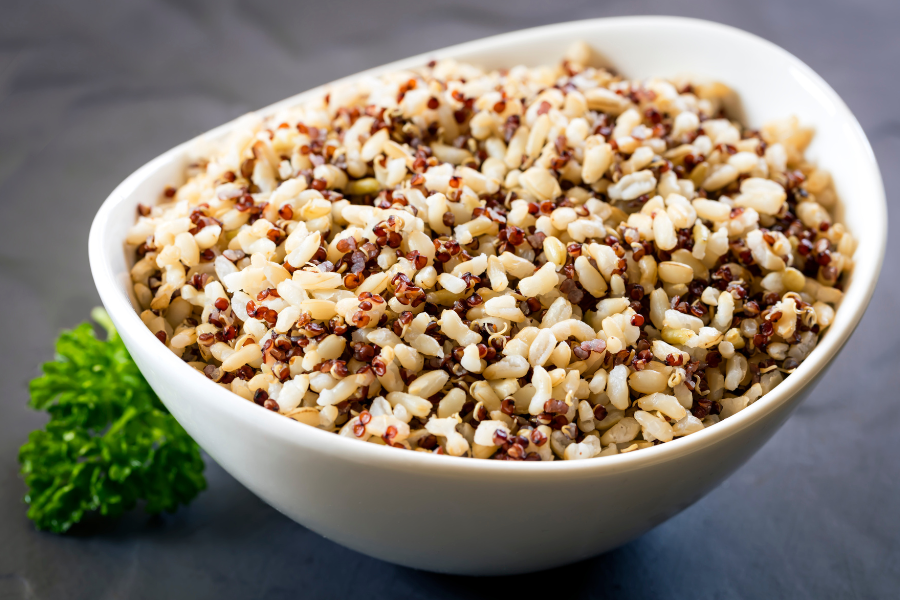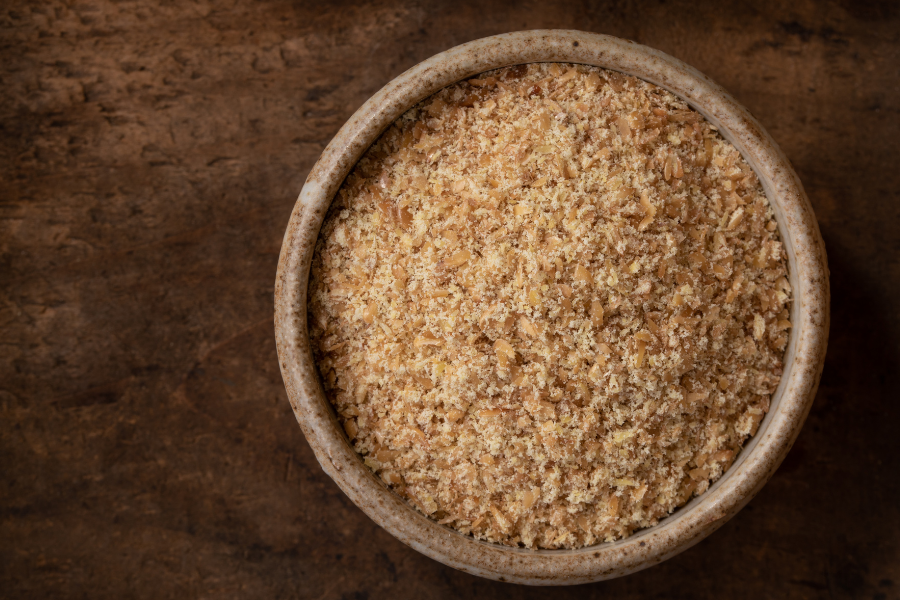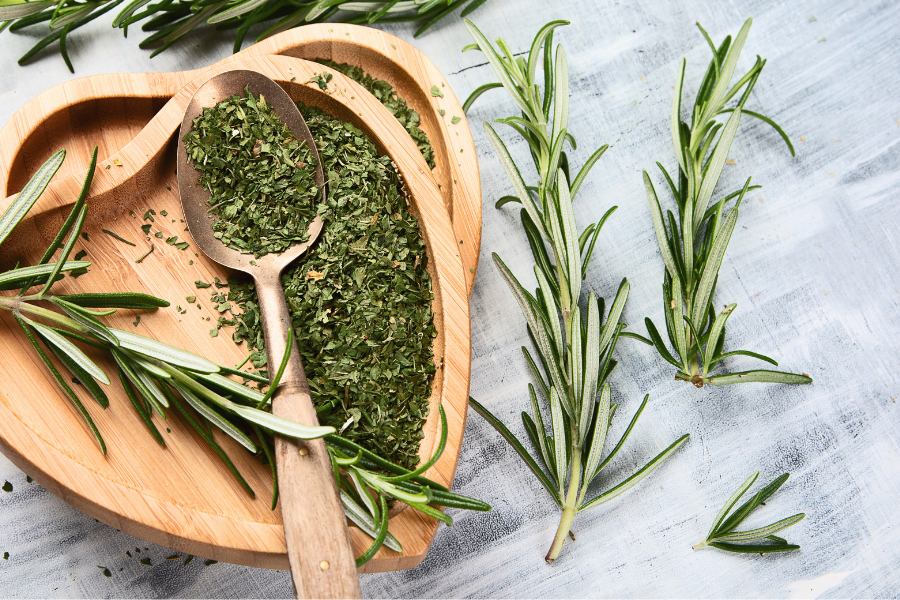If you're a quinoa person, you know and love the health benefits it has. But what about your four-legged bff? Can dogs have quinoa? And can quinoa benefit dogs in the same ways it can benefit humans? In this blog we will dig in and sort through this grainy query!
What is Quinoa?
Quinoa has been a darling of the health food world for a while now, and for good reason. But what is it, exactly? Most people think quinoa is a grain, but it is actually a (drumroll please)... a seed!
Native to the Andes (South America), quinoa is full of healthy nutrients, including protein and fiber. The health benefits plus its distinct, earthy flavor make it a great addition to many meals. You can now even buy a lot of products made with quinoa in them, including quinoa pasta.
But does its stellar health profile hold up when it comes to our four-legged friends?
Why is Quinoa Considered a Superfood - What is a Superfood Anyway?
The term superfood is thrown around a lot these days, but how is a superfood classified anyway? While there are no strict rules, superfoods are basically foods that are extremely dense with minerals, and antioxidants. This density of nutrients far exceeds that of conventional foods. Quinoa no doubt falls into this category for a few reasons. First off, it is one of the few plant-based complete proteins. Second, quinoa has a lot of fiber, which supports digestion. And lastly, it is loaded with essential minerals (like magnesium) which can help a number of bodily functions run smoothly. For these reasons, quinoa wears its superfood crown proudly.
The Nutritional Profile of Quinoa
As we have illuded to, quinoa has quite an impressive nutritional profile. Here is what makes quinoa the quin-bee (you see what we did there?) of the seed/grain world:- It's a complete protein, which means it contains all nine essential amino acids.
- Quinoa is rich in fiber.
- It contains B vitamins and antioxidants like quercetin.
- Quinoa has a low glycemic index, which basically means it won't cause spikes in blood sugar.
- It contains the minerals magnesium and manganese.
- It is GF (gluten free), making it good for people and dogs with a gluten sensitivity or allergy.
Can Dogs Eat Quinoa? The Short Answer
Okay, now for the answer you have been patiently waiting for. You deserve a treat! Yes, dogs can have quinoa and it can be good for them! But there are some things about quinoa you should be aware of before you feed it to your dog.
- Quinoa isn’t toxic to dogs, and many pet food manufacturers actually include it in their formulations as a protein and carbohydrate source.
- Not every dog will tolerate quinoa, making it important that you introduce it to your dog slowly and carefully.
- Even if your dog can tolerate quinoa, you should still introduce quinoa gradually, so as to not overdo it. (This will allow your dog to avoid any digestive upset.)
Potential Benefits of Quinoa for Dogs
- Protein Powerhouse
While vets will recommend that most of the protein in a dog's diet come from animal sources, the complete protein found in quinoa will help build strong muscles and regulate hormones.
- Boosting Fiber Intake
The fiber found in quinoa is good for digestion. Good fiber intake will help people and dogs stay more regular (with their bowel movements) and prevent constipation. But beware - too much fiber can actually lead to GI distress, so do not give your dog too much!
- Packed with Vitamins and Minerals
The wide array of vitamins and minerals found in quinoa can support your dog’s overall health. Magnesium, for example, is key in supporting bone and nerve health, while manganese is important for energy metabolism.
Potential Risks of Feeding Quinoa to Dogs
- Saponins Concerns
Quinoa has compounds called saponins. While we are not going to do a deep dive into saponins today, just know that they can irritate a dog's belly when consumed in large quantities. To minimize this risk, make sure you rinse quinoa thoroughly before you cook it. This helps to remove the saponins.
- Digestive Upset
Some dogs may experience digestive upset after consuming quinoa. This is why it is recommended to start with a small amount for your dog.
- Allergic Reactions
It is rare, but some dogs may be allergic to quinoa. Allergy symptoms to any food can include itching, digestive upset, and fatigue. If you notice any of these signs, stop feeding quinoa immediately and call your vet.
Introducing Quinoa to Your Dog’s Diet
If you've decided to give quinoa a try, here’s how to do it safely:
- Cook It Well
Always cook quinoa before serving it to your dog. Raw quinoa can be difficult for dogs to digest and may contain higher levels of saponins.
- Start Small
Begin with a small amount mixed into your dog’s regular food. Observe your dog for any signs of digestive upset or allergic reaction.
- Monitor Your Dog
Keep an eye on your dog’s behavior and health over the first few days of feeding quinoa. If you notice any adverse effects, discontinue its use and consult your veterinarian.
- Use as a Supplement
Quinoa should not replace your dog’s main diet. Use it as an occasional treat or supplement to add variety and nutrients.
When to Avoid Feeding Quinoa to Your Dog
While most dogs do well with quinoa, you should talk to your vet first or avoid quinoa to your dog altogether if:
- Your dog has a sensitive stomach.
- Your dog has had adverse reactions to other seeds or grains.
- You notice any negative reactions when you feed it to them.
Final Thoughts on Quinoa for Dogs
So, to whoof things up here, quinoa could be a perfect treat for your pooch if you introduce it in the right way. It's packed with protein, fiber, and a whole bunch of vitamins and minerals that can do wonders for your doggo's health. But, like anything new, you should take it slow and keep an eye on your dog's reaction.
Keep in mind, all dogs are NOT the same, which means what's good for one might not suit another. Always have a chat with your vet before you switch up your pup's meals big time. They'll be able to give you the best advice for your dog's specific needs.
FAQ
Is Quinoa Better for Dogs than Rice?
Ah, the age-old debate of quinoa vs. rice for dogs. What team are you on? Well, we hate to break it to ya, but there is no clear winner. It really boils down to your dog, their age, health, and dietary needs.
Quinoa packs more of a nutritional punch with its protein, fiber and vitamin + mineral profile. This makes it ideal for growing pups, dogs that expend a lot of energy, or dogs that need an extra protein boost.
Rice, on the other hand, is widely considered one of the most digestible foods for dogs, making it a good fit for dogs with the most sensitive stomachs.
What Color Quinoa is Good for Dogs?
Quinoa comes in a variety of colors, including black, red and white, and each one has a slightly different taste and nutritional makeup (very slight differences). White quinoa is usually the most widely available, and it is also typically has a softer texture than the other colors. This can make it easier for your dog to digest. Again, all types of quinoa have pretty much the same nutritional benefits, so it mostly comes does to what you think your dog will like and tolerate the best. Whatever color quinoa you do choose, just remember to introduce it slowly to your pup, and keep a close eye on how your pup reacts.
References
1) Traughber ZT, He F, Hoke JM, Davenport GM, Rodriguez-Zas SL, Southey BR, de Godoy MRC. Ancient grains as novel dietary carbohydrate sources in canine diets. J Anim Sci. 2021 Jun 1;99(6):skab080. doi: 10.1093/jas/skab080. PMID: 33765135; PMCID: PMC8174469.



